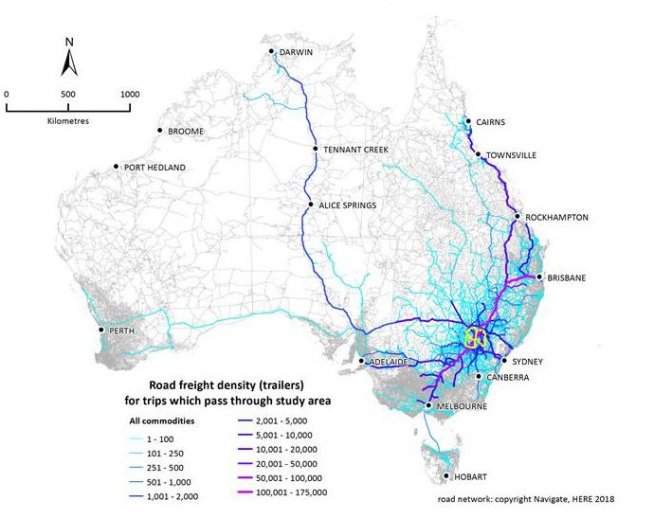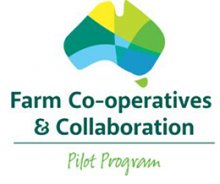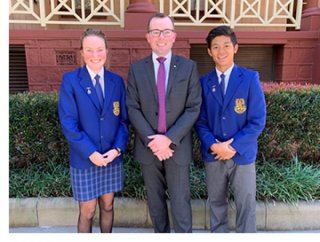-
Featured Items
-
Featured Resources
 Funding & Grants
Don't miss out on funding opportunities. Stay informed with our up to date online listings and email notifications.
Read More
Funding & Grants
Don't miss out on funding opportunities. Stay informed with our up to date online listings and email notifications.
Read More
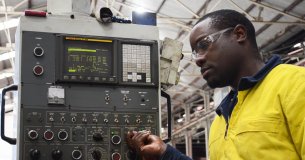 Skilled Migration
Our services help both applicants and employers, to learn more, develop plans, submit applications, and settle in.
Read More
Skilled Migration
Our services help both applicants and employers, to learn more, develop plans, submit applications, and settle in.
Read More
 Research and Analysis
Good research and analysis makes the case. How can our resources and services help your project or application?
Read More
Research and Analysis
Good research and analysis makes the case. How can our resources and services help your project or application?
Read More
 Information & Data Resources
With resources like REMPLAN, Regional Knowledge Base, and decades of data, discover how we can help your project.
Read More
Information & Data Resources
With resources like REMPLAN, Regional Knowledge Base, and decades of data, discover how we can help your project.
Read More
-
Stay InformedSubscribe to one or more of our regular email subscriptions, to be kept up to date on news and funding opportunities for the region
-
-
Our Region
- Our Region
- Regional Plan
- Regional Data
- Current Regional Issues
- Population Migration Analysis for 2016-21
- Job Vacancies Continue at All-Time High
- National Debt - What it Means for Our Economy?
- The True Value of Home Solar
- The Economic Impacts of Local Government Amalgamations
- State of the Regions Report 2014-15
- Antifragility - A different take on regional economic development
- Biohubs - Collaborative Waste Management
- Attracting New Residents
- Socio-Economic Impacts of the Murray Darling Basin Plan
- Murray Darling Basin Water Recovery
- Growing Businesses
- The Northern Inland Economy
- Geographical Overview
- Major Industry Sections
- Our Services
- Grants and Funding
-
Skilled Migration
- Skilled Migration
- Skilled Employer Sponsored Regional Visa
- Skilled Work Regional Visa (subclass 491)
- Temporary Seasonal Workers
- Designated Area Migration Agreement (DAMA)
- Helpful Information for Visa Holders
- Information for Employers
- Case Studies
- Payment Details
- Advice & Further Information
- Contact Details
- News & Events
-
Our Projects
- Our Projects
- Current Projects
- Skilled Migration
- Wool Works - Wool Training Schools
- Metal Works - Welding and Fabrication Schools
- Come On Inland
- Stories of Resilience
- Alt Brothers Beekeeping - Glen Innes
- Carelle's Toy Store - Glen Innes
- Greenhill Orchards - Arding
- Gwydir Meats - Warialda
- Kaputar Motors - Narrabri
- Moonbi General Store - Moonbi
- Sandstock - Tingha
- Sherelle Fashions - Tenterfield
- Sleepy Merino - Inverell
- Tenterfield Chamber of Toursim, Industry and Business - Tenterfeild
- The Welders Dog - Armidale
- Walcha Veterinary Supplies - Walcha
- AGCAP - Agribusiness Careers & Professions
- Northern Inland Regional Investment Profile
- Past Projects
- Digital Economy Strategy
- Business Growth Project
- Go Digital
- How to Start an Online Business
- Create Your Website Using Squarespace
- How to Edit Your Squarespace Site - Part 1
- How to Edit Your Squarespace Site Part 2
- Add a Shop to Your Squarespace Site
- Start a Blog and Find out What Customers are Searching
- 14 Tips For a Better Blog Post
- Which Social Media Platforms are Best for Your Business
- How to Use Facebook Effectively For Your Business – Part 1
- How to Use Facebook Effectively For Your Business – Part 2
- Instagram Tips for Business
- Catching Up, More Instagram & Dealing with Haters
- Getting Started with Twitter for Business
- Social Media Scheduling Tools
- How to Start an Etsy Shop – Part 1 – Research
- How to Start an Etsy Shop – Part 2 – Signup
- Online Security for Your Business
- Product Photography and Website Images: Your Guide
- 5 Tips to Improve your Productivity in your Business
- Best Online Business Resources
- How to Improve Your Communication Skills and Win More Clients
- NBN Coordinator
- Putting Power Back in the Regions
- Road Freight Study
- Town Audit Benchmarks
- Food and Wine
- Youth Survey
- Digital TV Switchover Assistance
- Northern Inland Transport Guide
- Live.Train.Work
- Northern Inland Innovation Awards
- Northern Inland Innovation Awards - 2017
- Northern Inland Innovation Awards - 2016
- Northern Inland Innovation Awards - 2015
- Northern Inland Innovation Awards - 2014
- Northern Inland Innovation Awards - 2013
- Northern Inland Innovation Awards - 2012
- Norther Inland Innovation Awards - 2011
- Prime Super Northern Inland Innovation Awards - 2010
- Prime Super Northern Inland Innovation Awards - 2009
- Northern Inland Innovation Awards - 2007
- Northern Lights Project
- NBN Smart Home
- Murray Darling Basin
- Moree Plains Business Workshops
- Namoi Investment Prospectus
- Industrial Land
- Bioenergy and Local Electricity Retailing
- Northern Inland Business Energy Assessment
- Skills for the Future
- Impacts of COVID-19 on Businesses
- Past Projects of NIRDB
- Aboriginal Employment and Enterprise in the Gunnedah Region
- Art as an Industry
- Aviation Survey
- Farm Forestry - Northern Inland Forestry Investment Group
- New England North West Film Strategy
- Northern Inland Excellence in Business Awards
- Food and Wine 2003 - 2008
- Prime Super Northern Inland Innovation Awards 2009
- Regional Business Networking Program
- Regional Leadership Course 2008
- Viticulture Strategy 2002-2003
- About Us
- Contact Us
- Other Resources
- Privacy and Legal
- Search
Back to Newsletters
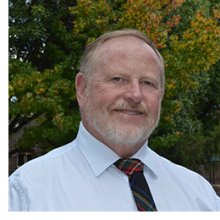
May 2019 Newsletter
Tuesday 21st of May 2019
In this Issue:
- Welcome from the Chair
- Upcoming Changes for Regional Visas
- Inland Rail Expected to Save the Agricultural Industry $70M Per Year
- Considering Establishing a Farming Co-op?
- A Taste of Politics for Student Leaders
- Featured Grants and Funding Opportunities
- What's On in the Northern Inland
Welcome from the Chair

Dear Northern Inlanders,
Welcome to another full edition of our newsletter.
It’s been a busy couple of months in our Federal and State Parliaments, with elections being held for both since our last newsletter. I would like to take this opportunity to congratulate all of our elected representatives and we look forward to working with you in the future for the prosperity of our region.
This month was also eventful with two of our staff graduating from UNE. James Pryor was awarded the University Medal and graduated with a Bachelor of Economics with First Class Honours. Tiffany Gilleland also graduated with a Master of Arts in Media and Communications. Both James and Tiffany bring a wealth of knowledge and experience to our team and are enthusiastic to use their skills for the benefit of our region.
Our skilled migration programs continue to fill skill-gaps in our region for employers and attract skilled workers to move into our region. There are some changes on the horizon for the regional visas, which you can find out about below.
Regards,
Russell Stewart
Chair
Upcoming Changes for Regional Visas
Through our Skilled Migration programs and acting as a Regional Certifying body, we make an important contribution to our region’s economy. For employers who need a position filled and cannot do so with local labour, skilled migrant labour can be critical. For skilled workers from overseas, these pathways to permanent residency are an opportunity for a quality lifestyle in a quiet yet vibrant regional Australian community.
Our role as a Regional Certifying Body for the Department of Home Affair’s Regional Sponsored Migration Scheme (RSMS) includes providing advice to the Department about a nominating employer and how they meet the required criteria, including the inability to fill the nominated position locally. We also provide assessments on behalf of the NSW Government for regional sponsorship for the 489 visa sub-class. The Australian Government Department of Home Affairs has advised that two new visas will be introduced from November this year. We will continue to act as a regional certifying body for these new visas.
The existing Regional Sponsored Migration Scheme (RSMS) visa will be replaced by a new Skilled Employer Sponsored Regional (Provisional) visa from the 16th of November 2019. This new visa seeks to reform the visa system, including visa requirements, to encourage migrants to settle and stay in regional areas, while also providing additional protection to Australian and foreign workers. It will continue to support regional employers to fill critical skills and labour shortages where suitable skilled Australian workers are not available. The current 489 Skilled Regional (Provisional) visa will also be replaced by the Skilled Work Regional (Provisional) visa in November.
Holders of the new skilled regional provisional visas will need to live and work in regional Australia and will be granted visas for a period of five years. Once meeting the criteria, they will be able to apply for a Permanent Residence (Skilled Regional) Visa.
The introduction of the two new regional visas in November 2019 will not impact people who already hold existing visas. Applications lodged with the Department of Home Affairs prior to November 2019 will continue to be processed in line with the conditions at the time of lodgement. There will be no impact on the permanent residence of current permanent visa holders.
Further information on the new visas is available on the Department of Home Affairs website.
We will provide further information about these new visas closer to the changeover of the new visa on our website and through this newsletter as it becomes available. Applications for RSMS may still be submitted by employers or their agents as per the instructions on our website until the change on the 16th of November.
As the financial year draws closer, we have now ceased accepting applications for Skilled Regional Sponsorship for visa sub-class 489 applicants. We anticipate that we will be re-opening applications for sponsorship for the Northern Inland region in early July, and applicants should monitor the Skilled Regional Sponsorship page on our website for updates, which will be listed as soon as the information is available. To ensure the timely processing of current applications, we request that potential applicants do not call the office to enquire about applying in July until details are listed on the website.
Inland Rail Expected to Save the Agricultural Industry $70M Per Year
Research conducted by the CSIRO has determined that the Melbourne to Brisbane Inland Rail project could reduce transport costs for the agricultural industry by an estimated $70 million per year by shifting existing agricultural road trips to the lower cost transport option the Inland Rail provides. This is equal to between $64 to $94 per tonne of savings (depending on back-loading), and 923,000 tonnes of horticultural and processed agriculture are expected to be shifted off our roads and onto the railway. The analysis also indicates a substantial benefit to the community in the study area through a reduction of up to 63,000 heavy vehicle trips per year along various segments of the Newell Highway.
“Our research has shown that Inland Rail would bring an improvement in rail travel time and transport cost, particularly important when considering perishable products. This would make it a lot more competitive with the travel time advantages of road transport” CSIRO TraNSIT leader Dr Andrew Higgins said.
“A big cost in food production is transport, particularly given the large distribution of where and when it is grown across Australia, and the long distances to major domestic markets, often over 1000 kilometres,” Dr Higgins said. "These types of savings with Inland Rail would mean food companies would have lower cost access to markets further away than they supplied to in the past.”
Utilising the CSIRO’s computer logistics tool TraNSIT (Transport Network Strategic Investment Tool), along with extensive industry engagement, the Parkes to Narromine area of the Inland Rail was used to estimate the potential cost savings for the entire project as it is the first part of the track to commence construction. During the analysis, the CSIRO considered horticulture and processed agriculture, such as meat, rice and dairy products. The study was the first time such a detailed analysis on road to rail supply chains in Australia has been conducted.
As a next step, TraNSIT will now be applied to the broader Inland Rail corridor (commencing with the southern corridor from Narromine to Seymour in 2019) to obtain even more detailed cost savings across a broader range of commodities. New commodities will include grains, cotton, livestock, wool, minerals and general freight. The Department of Infrastructure, Regional Development and Cities will be working closely with State Governments, local councils and other key stakeholders to ensure the project complements local land use planning and freight network strategies.
TraNSIT has been used in previous research to test the benefits of transport infrastructure in regard to upgrading roads in Northern Australia and calculating agriculture and forestry transport benefits for industry and various levels of government. The TraNSIT computer modelling tool works by analysing every possible combination of transport routes and modes (road and rail) and determining those that optimise vehicle movements between enterprises in the agriculture supply chain.
Further information about the Supply Chain Mapping Study, is available on the Inland Rail website.
Considering Establishing a Farming Co-op?
Farming Co-operatives provide a recognised structure for farmers to pool production and / or resources in a way that allows them to work together and achieve better outcomes than what is possible individually. Effectively, the co-op provides economies of scale and economic synergy for its members.
Over the last two years, Farming Together was delivered by Southern Cross University as part of the Australian Government’s plan for a stronger agricultural sector. The program sought to help farmers work together through co-operative and other collaborative business models to take greater ownership along the supply chain, boost their bargaining position and deliver increased returns at the farm gate. During the pilot program, Farming Together interacted with over 28,500 primary producers, provided over $5.5 million in funding to 50 groups and supported over 220 co-ops. We were proud to be part of the pilot by providing expert advice on behalf of the program.
While the Farming Together pilot program has come to an end, there are still resources available to anyone who is interested in setting up a co-op, including Australia’s first online co-op builder tools, which have already been used by over 200 groups, including non-farming co-ops. The Co-op Builder a free step-by-step tool to help farming groups prepare and understand the legal documents required to form a co-operative in Australia. The available resources are as follows:
- The Co-Op Builder
- How to choose your co-op type
- Business planning for co-ops
- Understanding Co-ops Online Courses
A Taste of Politics for Student Leaders
Earlier this month, student leaders from around the region were hosted by State MP’s in Sydney as part of the Secondary Student Leadership Program run by the NSW Parliamentary Education Branch. The day allowed the students to gain a taste of NSW politics and included a tour of both chambers of the NSW Parliament and Government house, as well as the opportunity to talk to MPs about their lives as politicians.
Each year secondary school leaders from all high schools in New South Wales are invited to visit the Parliament to participate in the program. “This is such a great opportunity as the program recognises the school leadership role of students and provides them with the opportunity to meet their elected representatives.” Said Kevin Anderson MP.
"School leadership is where many national, state and local government representatives are inspired to pursue their careers in community service.” Adam Marshall MP said. "This program provides students with the opportunity to meet their elected representatives and to develop their knowledge of constitutional and parliamentary proceedings including the role of the Governor and the workings of the Parliament."
In addition to the traditional parliament house tours run by both the Australian and NSW Parliaments, video conferencing programs are also now available for regional students. Further information about these programs is available on the Parliamentary Education Office website for the Australian Parliament, and the Parliament of New South Wales website.
Featured Grants and Funding Opportunities
Below are some featured grants and funding opportunities from around 75 open grants listed in the Grants and Funding Opportunities area of our website. Our website is updated weekly with new listings and updates and all are applicable to our region, so it is a great resource if you are looking for funding for a specific project.
You can also sign up to our Business and Infrastructure Funding Opportunities and the Community Grants and Award Programs newsletters through the simple form located on the left-hand side of our website: www.rdani.org.au, to receive monthly summaries of currently open grants.
Community Enhancement Fund
Closes: 14th of June 2019 5pm
Value: Up to $25,000
Run By: Moree Plains Shire Council
New in 2019, Moree Plains Shire Council is offering a Community Enhancement Fund grant of up to $25,000 thanks to an annual contribution from the Moree Solar Farm.
All community, sporting or educational organisations serving community members in the Moree Plains Shire are welcome to propose projects or programs that will have a large impact on a broad segment of the Moree Plains Shire community or that can provide practical solutions to current community needs.
Under the Policy, Council will be able to consider how many local projects they wish to support as part of the annual contribution from the Moree Solar Farm allowing for larger scale projects than the Public Donation Fund.
A copy of the Community Enhancement Fund Application Form and Policy are available on Council’s website or can be obtained from the Moree Plains Shire Council, Max Centre, Balo Street Moree during normal office hours or by telephone on 6757 3222. Copies are available at the Moree Community Library and Offices at Boggabilla and Mungindi.
Investing in Women
Closes: 26th of May 2019
Value: Up to $100,000
Run By: NSW Government - Women NSW
The Investing in Women funding program funds NSW organisations to develop and implement projects that:
- Improve women’s financial wellbeing and security and support diverse and flexible employment opportunities for women and girls
- Promote and support a holistic approach to women’s health across the lifespan
- Support women’s engagement through social networks, access to information and building confidence using diverse representation of women and girls.
Projects that support high quality activity, engagement and participation with the following priority groups will be prioritised for funding:
- women living and/or working in regional NSW
- Aboriginal and Torres Strait Islander women
- women from culturally and linguistically diverse (CALD) backgrounds
- young women
- women with disabilities
- older women, and/or
- Lesbian, Bisexual, Transgender, Intersex and Queer (LGBTIQ) women.
Regional Employment Trials Program
Closing date: 30th of June 2020
Value: $7,500 to $200,000
Run By: Australian Government Department of Jobs and Small Business
The Northern Inland is one of only ten regions across Australia to be selected for the Regional Employment Trials Program. The Regional Employment Trials program provides local stakeholders in selected regions, including businesses, not-for-profits and local government agencies, with grants to trial local approaches to delivering employment related projects.
The objectives of the program are to deliver:
- strong connections between regional stakeholders, including employment services providers
- employment initiatives that meet local needs
- improved awareness of local labour markets
- the potential for improved regional employment outcomes
Grants are for between $7,500 and $200,000, for up to 75% of eligible project costs. Projects must be completed by 30 June 2020.
What's On in the Northern Inland
Australian National Maritime Museum Outdoor Containter Exhibition
Friday 17th of May to Sunday 28th of July
Narrabri
Up the Creek Campdraft
Friday 24th to Sunday 26th of May
Mauls Creek
STEM Workshop
Saturday 25th of May
Boggabri
Concert of Chamber Music
Tuesday 28th of May
Armidale
MerinoLink Annual Conference and Field Day
Wednesday 19th to Thursday 20th of June
Armidale
SMART101: Managing Intellectual Property
Thursday 23rd of May
Tamworth and Armidale
Gum Flat Family Picnic Day
Saturday 25th of May
Gum Flat
Birdwatching Field Trip
Saturday 25th of May
Barraba / Manilla (Departing Tamworth)
Upper Horton Trail Ride
Saturday 25th to Sunday 26th of May
Upper Horton
100 Mile Paddock to Plate Long Lunch
Sunday 26th of May
Gunnedah
Ben Lomond Winter Fair
Saturday 1st of June
Glen Innes
Elsmore Family Fun Day
Saturday 1st of June
Elsmore
Narrabri and District Poultry Club Annual Exhibition
Saturday 1st of June
Narrabri
Little Bang Discovery
Monday 3rd of June
Moree
SMART101: Design Thinking
Part One: Thursday 6th of June
Part Two: Thursday 20th of June
Moree
Service NSW Mobile Service Centre
Thursday 6th to Thursday 20th of June
Multiple Locations
Various
Time Out from the Drought
Sunday 9th of June
Narrabri
Rowena Cracker Night
Sunday 9th of June
Rowena
Gather at the Gallery
Wednesday 19th of June
Gunnedah
Related Pages







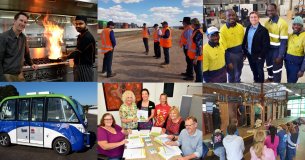 Latest News
Latest News
